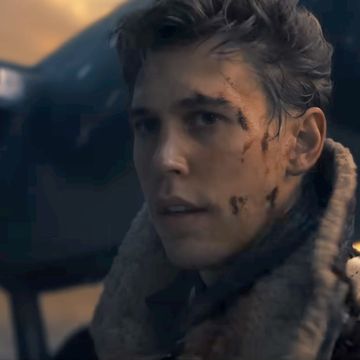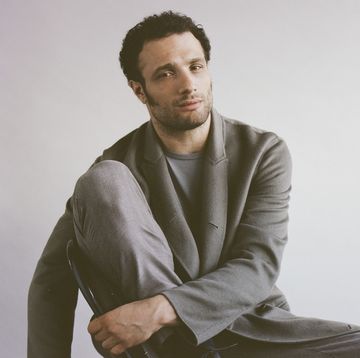If you're going on a journey, it's common sense to know where you're headed – but the vast majority of TV shows get under way without a concrete idea of when and where their story will end.
Having a game plan doesn't always guarantee success, mind. The Lost writers had three years to plan their climax, with a 2010 finale date set back in 2007, but still managed to produce one of the most divisive endings of all time, while How I Met Your Mother stuck so rigidly to an endgame planned since the pilot that it felt like a betrayal of a show that had evolved beyond its original gimmick.
But if you get it right, having some forward planning in place can produce serious results. These shows all wrapped on the perfect note, ending up where they'd always been heading.
1. Breaking Bad
Series creator Vince Gilligan had a clear vision for Breaking Bad and its protagonist (or is that antagonist?) Walter White from the very beginning. "I originally pitched it to the studio with one line. I told them: 'This is a story about a man who transforms himself from Mr Chips into Scarface'."
The corruption of Bryan Cranston's character – from mild-mannered school teacher to utterly ruthless crook – was gradually, expertly played out across the show's five seasons. And in the series premiere, we hear Walt tell his students about how chemistry is "the study of change: it's growth, then decay, then transformation."
In the following episode, he's teaching the chemistry concept of "chirality" – how "identical and yet opposite" organic compounds "may look the same, [but] don't always behave the same".
He describes the clash of "active" vs "inactive" and "good" vs "bad" – all masterful foreshadowing of his eventual transformation into the terrifying Heisenberg.
2. Spartacus
The legend of Spartacus is fuzzy enough that you'd think Starz and series creator Steven DeKnight would've had quite a bit of wiggle room when it came to crafting the final episode of their brilliantly bloody take.
But in fact, they were tied into a very specific ending, having meticulously foreshadowed the events of 'Victory' way back in the Spartacus pilot. Spartacus (Liam McIntyre) dies, having lost the war against Crassus (Simon Merrells) but having won his freedom, and is buried in a grave marked by a shield with a red serpent symbol.
Back in the pilot, Spartacus (then played by the late Andy Whitfield) is told by wife Sura (Erin Cummings) that she'd had a dream in which he was "bowing before a great red serpent, the life draining from his veins".
"It's a warning," Sura says. "If you go to war, you are destined for great and unfortunate things."
Now that's quite the Easter Egg.
3. Merlin
The legend of King Arthur might have dictated that Bradley James's character should perish in the series finale of BBC One's Merlin, but the family fantasy could easily have taken the easy way out and opted for a more palatable ending in which Arthur survived. (See the Beeb's more optimistic ending to its later Musketeers series.)
But executive producers Johnny Capps and Julian Murphy confirmed at the end that Arthur's fate had been sealed "almost since the beginning".
"We were talking about Arthur's death in episode 8, series 1," Murphy said. "The thing is, there's something about this legend that works because it failed. They did create this Camelot, and it failed. It always carries that – as a myth, as a story, as a culture – and we can't really run away from it."
Tragic it might've been, but as Digital Spy noted at the time, "the script is admirably dark and doesn't shy away from what is a difficult ending, and the show as a whole climaxes on an emotional high."
4. Bates Motel
A&E's Psycho prequel might have diverted from the original ending to both Robert Bloch's novel and Alfred Hitchcock's classic film, with the show's version of Marion Crane (Rihanna) surviving her shower and Norman Bates (Freddie Highmore) ending up six feet under instead of behind bars.
But series creators Kerry Ehrin and Carlton Cuse insisted after the broadcast of 'The Cord' that they'd had their particular twist on Norman's story sketched out from the beginning.
"The specifics of it obviously couldn't exist until the other 49 episodes had been written, but yes, [it's as we intended]," Cuse said. "I have to say, this has been an extraordinary experience where Kerry and I have really been able to make the show that we wanted to make, in the way we wanted to make it.
"We always imagined that the end of the show would be Norman and Norma couldn't find happiness in this world. Maybe only in someplace beyond this world can the two of them actually have what they've always wanted."
And fans and critics alike lapped up their vision. IGN raved about the "excellent" and "heartbreaking" finale, while Den of Geek called the final season as a whole "stunning".
5. Blackadder Goes Forth
Each series of Blackadder explored a different incarnation of Rowan Atkinson's shrewd schemer, and inevitably, each outing would end with the character meeting his maker (save for Blackadder the Third, which has Edmund seize the throne after surviving a near-death experience).
So that Blackadder Goes Forth – the last of the show's original run – closed with the title character's demise wasn't entirely unexpected. What was surprising was just how poignant this particular death ended up being.
Knowing Edmund's fate was sealed, writers Ben Elton and Richard Curtis initially played up his egotism and self-serving nature, as the character concocted all manner of wild schemes to escape the trenches of the First World War.
Ultimately though, his loyalty to his men, simple Baldrick (Tony Robinson) and George (Hugh Laurie), overcame Blackadder's instinct for self-preservation and they all dashed into the violent chaos of No Man's Land together.
6. Mad Men
No-one could have foreseen Don Draper abandoning the life he'd built and finding refuge at a hippie commune... except for Mad Men creator Matthew Weiner, who'd plotted the ad-man's escape to the oceanside retreat from the very beginning.
"The idea that he would end up at an ashram, or something like that, was with me from when I pitched AMC the first season," Weiner told The Hollywood Reporter. "It was a two-step process: They liked the pilot, but they wanted to know what the rest of the show was.
"They didn't want a Bible, but they wanted to know what it would be about every week. I gave them an endgame if we got to do the whole decade. That was the image. I always imagined it would be him on a bluff somewhere, sitting in the lotus position with a smile on his face."
Having a clear vision for Don's fate paid off: Weiner was nominated for an Emmy for his finale 'Person to Person', while Jon Hamm, who also submitted the episode to Emmys that year, finally picked up the 'Outstanding Lead Actor' trophy after being nominated eight times on the trot.
7. Penny Dreadful
It came as a huge surprise to fans of Showtime's gothic drama when it suddenly and dramatically wrapped up in June 2016, with no prior announcement that the show's third season was to be its last.
But according to Showtime boss David Nevins, series creator John Logan had "always envisioned" a three-season arc for Eva Green's tragic Vanessa Ives. "To me, the show was always going to achieve closure with the death of Vanessa," Logan himself confirmed.
The decision left fans and critics reeling... in a good way. Vulture called two-part finale 'Perpetual Night' / 'The Blessed Dark' "a never-not-tense two hours of bloodshed and badass-ery" while The A.V. Club branded Penny as a whole "a television show that was almost always better than it had to be", calling it "rich and atmospheric, dark and mysterious, and one of a kind".
Nailed it.














